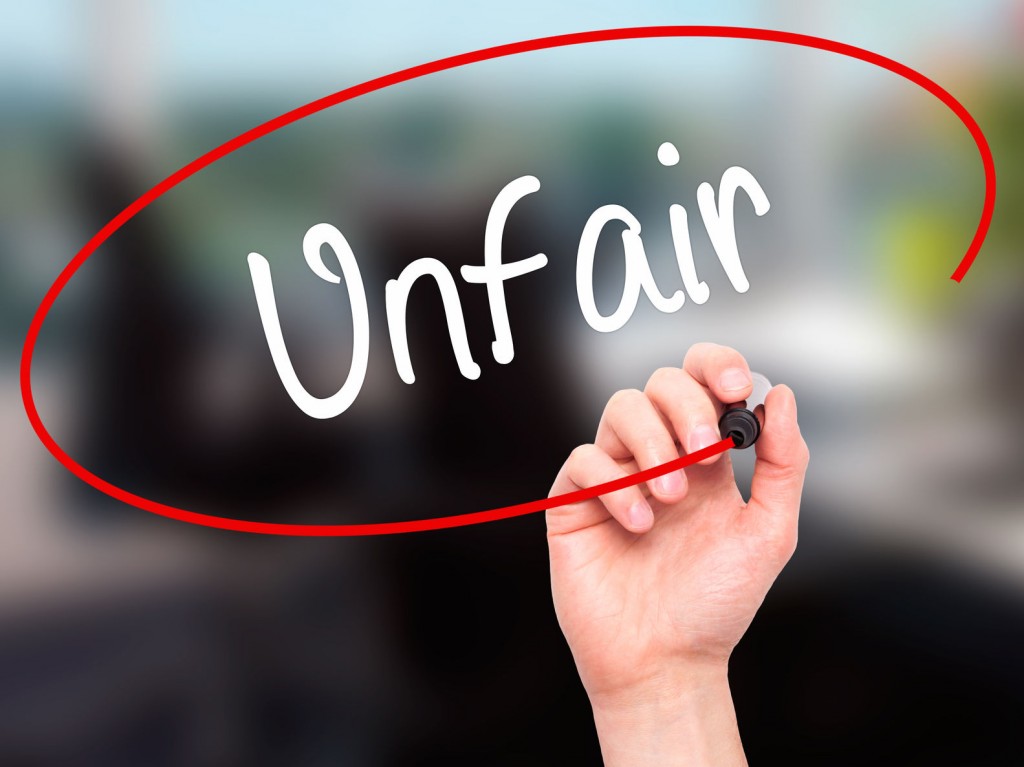Do you consider it to be fair if every child in your family has the same responsibilities as well as privileges?

Courtesy 123RF/Jacek Dudzinski
Of course not! What you expect from a 12-year-old would not be the same as what you would expect from a 1-year-old. And the privileges that you give a 16-year-old would not be those you’d give to an 8-year-old. That seems easy enough to answer.
But what about when the ages are closer? Say 12 and 14? Should what you require of them around your home be the same? Should their privileges be equal?
That’s a little harder to answer.
What we found with our tribe who were all fairly close in age—all five were born within seven years—is that to be fair doesn’t always mean equal for each child.
Parents often hand out similar responsibilities when ages are close. But then they often divide up privileges with more discretion, which can leave the younger child fuming.
When our children were young, they seemed to notice any disparities between each of them. Some seemed unfair. So, we had to be more specific about both responsibilities as well as privileges.
Here are a few guidelines we used:
- Keep a record. Believe it or not, we did have a journal called The Book of Ages where we recorded ages for certain privileges. Even something as little as bedtimes can help a child to feel that he is being treated more appropriately according to his age. Another area where this was helpful was in determining what percentage of a child’s income should be discretionary money. All of our children began earning money with various jobs when they reached 12 years of age. However, the percentage of money we required them to put in savings versus how much they spent varied greatly between 12, 14, or even 16 years old. The reason for this was that they had different needs at various ages.
-
Privileges are earned. Some privileges in our home came with age. Others were given as a result of a child showing himself responsible. Add to that the fact that not all children mature at the same rate, and you can see how there are fine lines in what we allow with each child. In our home, being able to cut the lawn with a riding lawn mower—yes, our kids saw this as a privilege—had to be differentiated between boys and girls, mostly due to their physical capacity.
-
Deal with children as individuals, not a group. This was especially important with our twins. Though many of the privileges and responsibilities of our girls were the same, we made it a point not to refer to them as “the twins.” Lumping them into a group, even though it was just two and they were the same age, just didn’t make our girls feel like they were being treated uniquely.
-
Talk about any differentiation positively. Although a child will not get a certain privilege until he gets older, point out the areas where his maturity has gained a new responsibility. It sometimes also helps to point out that a younger child hasn’t been given those responsibilities or privileges either. This can help the child to feel more confident that he is being treated with fairness.
-
Keep the lines of communication open. It was most important for our kids to know they could come to us and ask questions if they thought they had not been given a privilege that they deserved. They were allow to ask for “permission to speak freely,” which gave them the ability to come and ask for clarification. Sometimes that resulted in a change, and sometimes not; but, the privilege to ask for explanation and the chance to provide us new information for consideration was very helpful.
When raising kids, things will just not always be “equal.” Equitable, yes, depending upon age and maturity, and appropriate to the situation. When your children feel they have not been treated fairly, help them to understand the difference between equal and equitable. And encourage them to look forward to increased responsibility and privileges to come.
Question: How have you made sure responsibilities and privileges have been given fairly to your kids? Share your answer in the comments below.